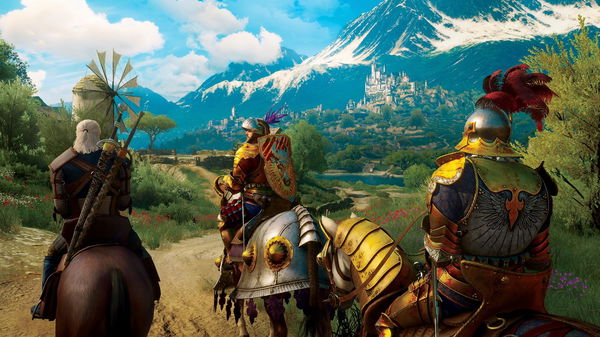

The gaming industry has been lately obsessed with open-world games. Every game is an open-world title these days. Even franchises that used to be very linear previously have turned open-world now. The biggest examples of such transitions have been Metro Exodus and Metal Gear Solid V: The Phantom Pain.
Then there are open-world games like Red Dead Redemption 2 that have ways to dress a character differently, make them eat food, and increase their health and stamina. But this does not necessarily make these games RPGs. There’s a huge difference between these two genres.
ADVERTISEMENT
Article continues below this ad
Open-world games and their linearity
One of the oldest and most successful video game franchises is GTA. Fans go bonkers when the developer announces a new game in this series. They crowd the stores and pre-order these games to such an extent that every new installment in the franchise makes a new record.

This series is a prime example of what an open-world game is. More accurately speaking, these are open-world sandbox titles; these games allow for an unrestrictive exploration of their game world. Sometimes they feature a bunch of activities in these games. GTA V, for example, allows players to play golf, do yoga, and even participate in street races. This is the extent of what these games offer outside of main stories. They are usually so successful because of how detailed their worlds are. Rockstar Games makes their titles with the utmost care and gives them so much attention when it comes to visual fidelity that they always end up being a milestone in the industry.
Then there are imitators. Games like Watch Dogs, Sleeping Dogs, etc. that try to do what GTA does. But the developers here need something to distinguish their games from GTA, so they have to come up with some extras to set their titles apart. Watch Dogs has the hacking, which allows players to manipulate the world around them through their phones. They can change traffic signals and even control cars. On the other hand, Sleeping Dog has very brutal hand-to-hand combat. Inspired by the Batman Arkham series of games, this combat is much more brutal and bloodier, but it gives players something to latch onto.
One thing all these games have in common is that they are not RPGs. They are open-world games that allow players to do what they want and just explore. But they are hardly as deep in terms of world-interaction gameplay as an RPG. They feature a linear story that goes as the developers intended, and that’s it for them.
Role-playing games and their complex worlds
While open-world games give players a massive open playground to explore, RPGs give players a world to live in. While there can be a bunch of open-world games that gamers often mistake for RPGs, a prime example is Red Dead Redemption 2, where Rockstar Games designed an interactive world and some gameplay mechanics such as eating and sometimes choosing what to say to other people. But in the long run of its linear story, those choices never made a difference.

And RPGs are normally much deeper when taking XP, skills, combat type, and character customization into consideration. Players find themselves surrounded by a world that would be full of enemies of much higher levels. Those enemies would either be above the player’s level or below.
When they are above, players have to prepare themselves better, level up, and spec their skills better in order to face them. When they are below their level, players can simply go and destroy them.
Read More: What Are Metal Gear Solid Master Collection Vol. 1’s Resolutions and Frame Rates?
ADVERTISEMENT
Article continues below this ad
Then comes the story. For this, let’s take one of the most distinguished RPGs in recent times, The Witcher 3: Wild Hunt. This game has a story that branches in a number of ways. What’s even more interesting is the fact that this branching storyline can be altered by players through their choices. Made throughout the game in various ways, these choices matter a lot. Players would find themselves having to decide if they wanted to kill someone or not. Or if they want to listen to one person, or just ignore them.
What’s so masterful is that developer CD Projekt RED has spread this in such a masterful way throughout the game that it comes organically. Imagine just taking a quest to find a person’s wife and daughter and, in the end, having to choose between killing a vengeful forest spirit or letting it live. And then imagine your choice here: changing the latter half of the game for better or for worse.
Games like Fallout New Vegas, Disco Elysium, and Baldur’s Gate 3 do exactly this on their own scale. A story’s linearity and a game world’s reluctance to be dynamic enough to change depending on player choice takes away the immersion from the usual open-world fair.
ADVERTISEMENT
Article continues below this ad
RPGs, on the other hand, remain immersive, even if they are not as beautiful as Red Dead Redemption 2, GTA V, or Watch Dogs 2.
Watch This Story: Players Can Only Speedrun Metal Gear Solid 4 Under These Special Conditions
ADVERTISEMENT
ADVERTISEMENT
ADVERTISEMENT
ADVERTISEMENT

